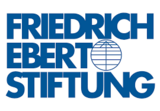Discussion Paper

Trump 2.0 and the United Nations: implications for multilateral funding and leadership
Baumann, Max-Otto / Sebastian Haug / Marianne BeisheimExternal Publications (2025)
Bonn: Friedrich-Ebert-Stiftung e.V. / IDOS / SWP / DGVN
ISBN: 978-3-98628-9
Volltext/Full text
The United States have long been the most important contributor to overall UN budgets and thus hold considerable financial power across the UN system. The second Trump administration is likely to cut funding and excessively prioritize earmarked contributions over the provision of core resources, which is set to exacerbate the growing misalignment of funding modalities and expected UN functions. Member states should embed short-term measures focused on mitigating the liquidity crisis in the UN Secretariat and funding shortfalls elsewhere in the UN system in longer-term strategic thinking about the refinement of UN roles and funding structures.
Contact
Cornelia Hornschild
Publication Coordinator
E-mail Cornelia.Hornschild@idos-research.de
Phone +49 (0)228 94927-135
Fax +49 (0)228 94927-130
Alexandra Fante
Librarian/ Open Access Coordinator
E-Mail Alexandra.Fante@idos-research.de
Telefon +49 (0)228 94927-321
Fax +49 (0)228 94927-130




![[Translate to English:] Photo: Alexandra Fante, Bibliothekarin/Open Access-Koordinatorin](/fileadmin/_processed_/f/0/csm__c_Deutsches-Institut-fuer-Entwicklungspolitik_Fante_94ce4fa1ba.jpg)